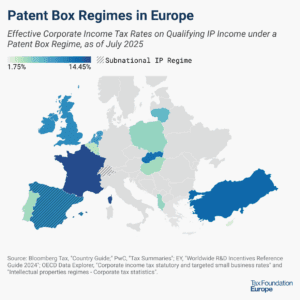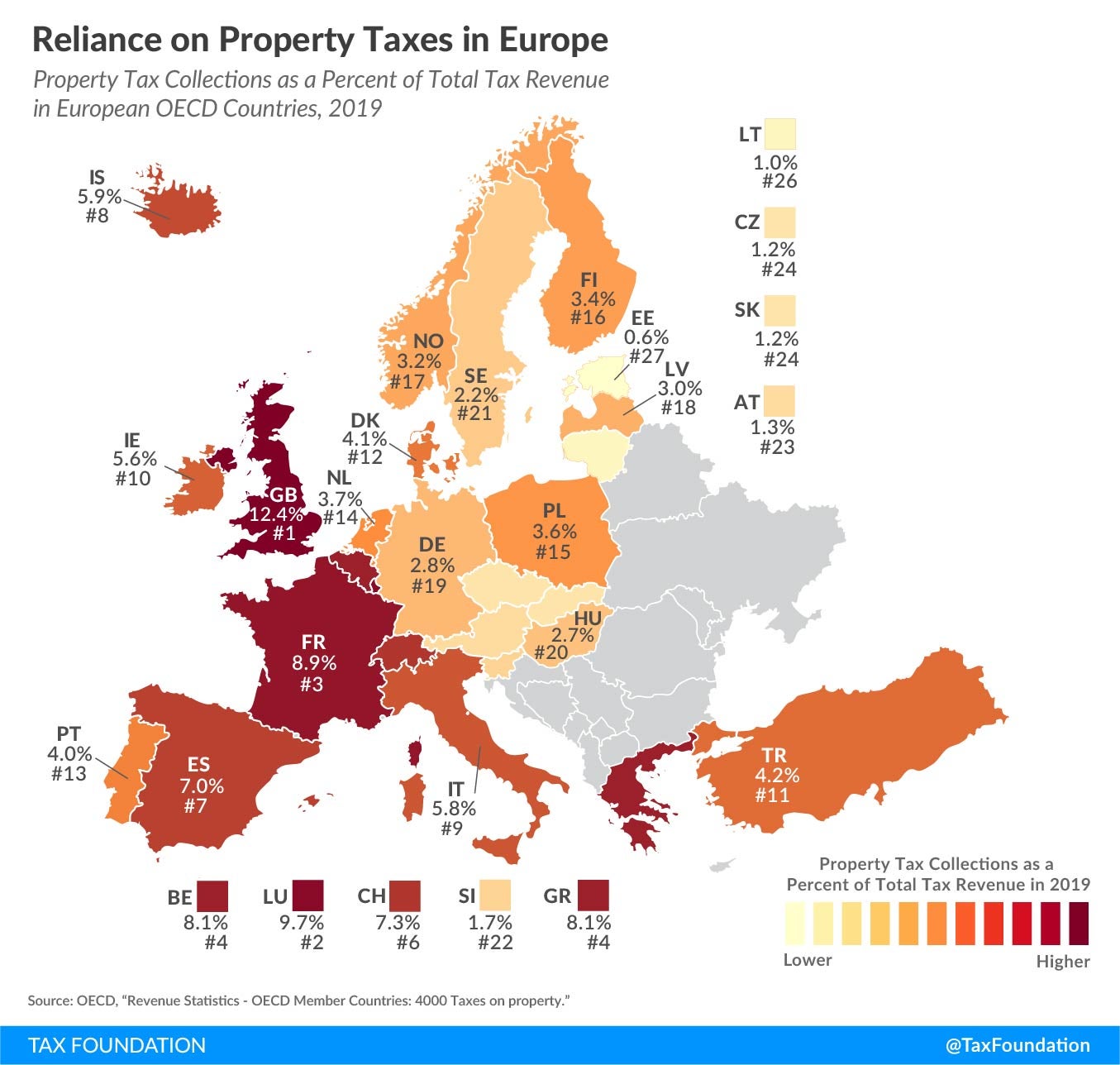
Reliance on Property Taxes in Europe
1 min readBy:A recent report outlines to what extent OECD countries rely on various taxA tax is a mandatory payment or charge collected by local, state, and national governments from individuals or businesses to cover the costs of general government services, goods, and activities. revenue sources. Today’s map looks at property tax revenue in European OECD countries, which, compared to other types of taxes, accounts for a relatively small share of total tax revenue. In 2019, property taxes accounted on average for only 4.5 percent of tax revenue in the 27 European OECD countries.
Property taxes are levied on the assets of an individual or business. There are different types of property taxes, with recurrent taxes on immovable property (such as property taxes on land and buildings) the only ones levied by all countries covered. Other types of property taxes include estate, inheritance, and gift taxes, net wealth taxes, and taxes on financial and capital transactions.
The United Kingdom relied the most on property taxes in 2019, at 12.4 percent of total tax revenue. Luxembourg and France were next, at 9.7 percent and 8.9 percent, respectively.
Estonia had the lowest reliance on property taxes, at only 0.6 percent of total tax revenue, followed by Lithuania (1.0 percent) and the Czech Republic and Slovakia (both at 1.2 percent).
Note: This is part of a map series in which we examine tax revenue sources in Europe.
Stay informed on the tax policies impacting you.
Subscribe to get insights from our trusted experts delivered straight to your inbox.
Subscribe





